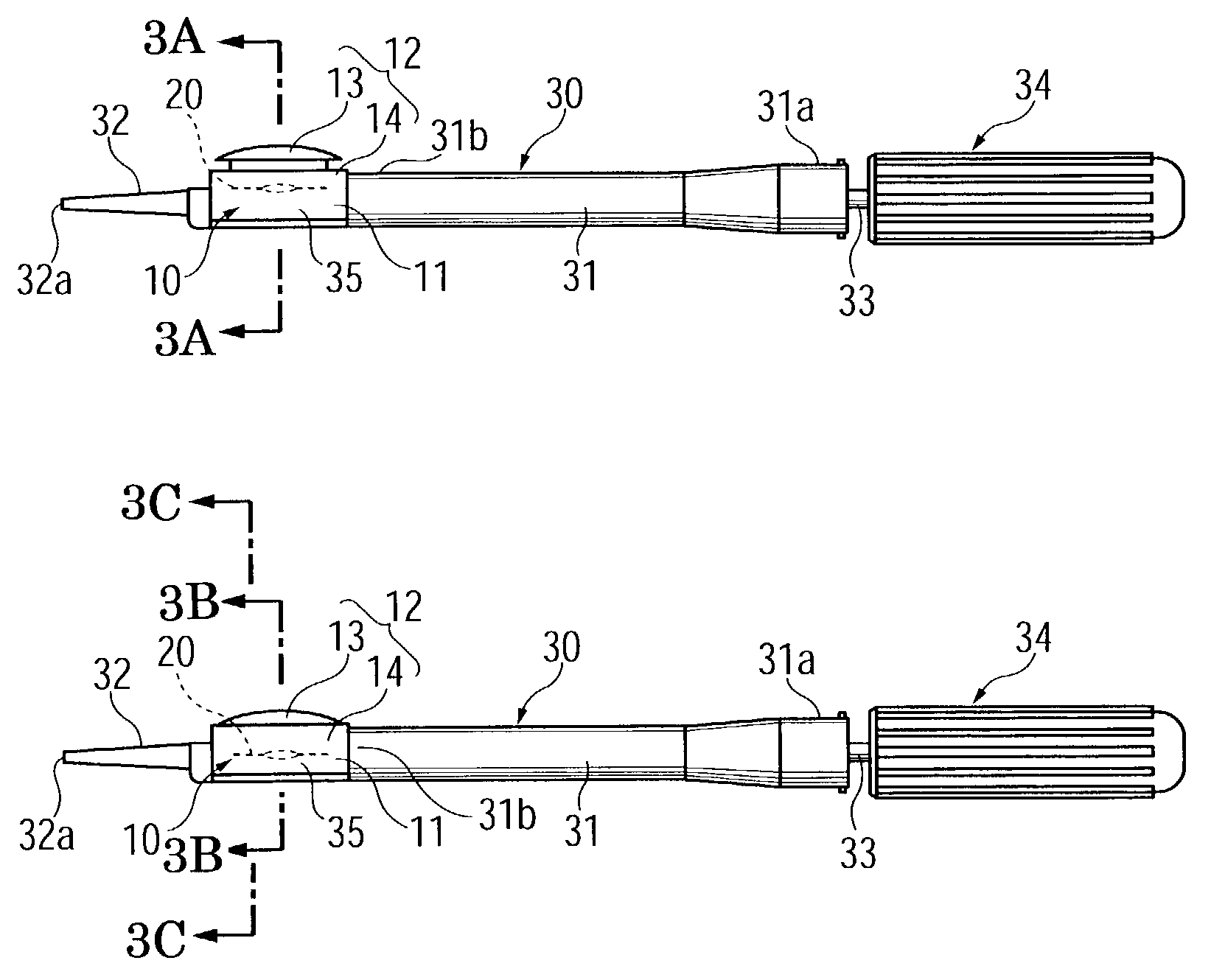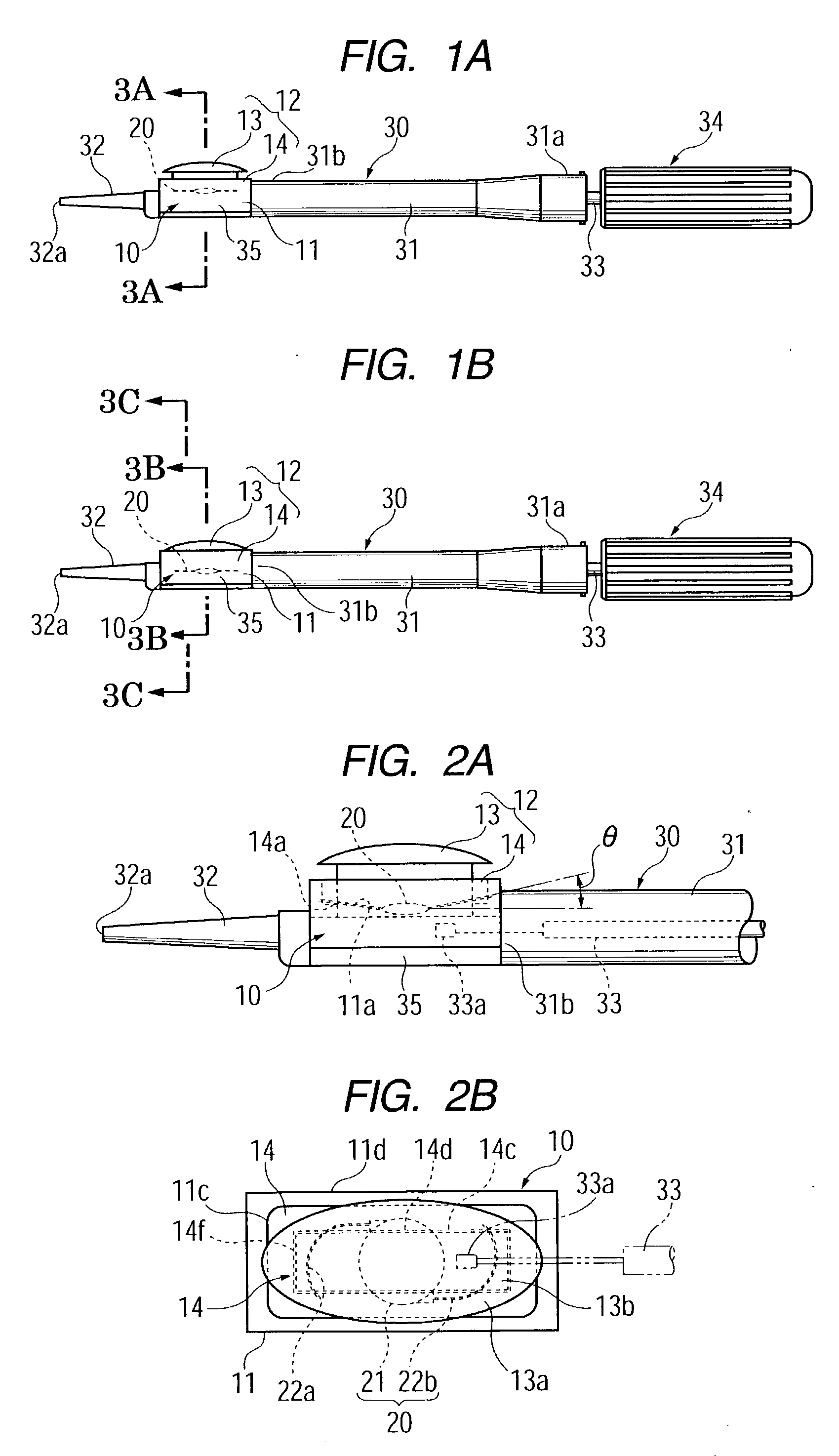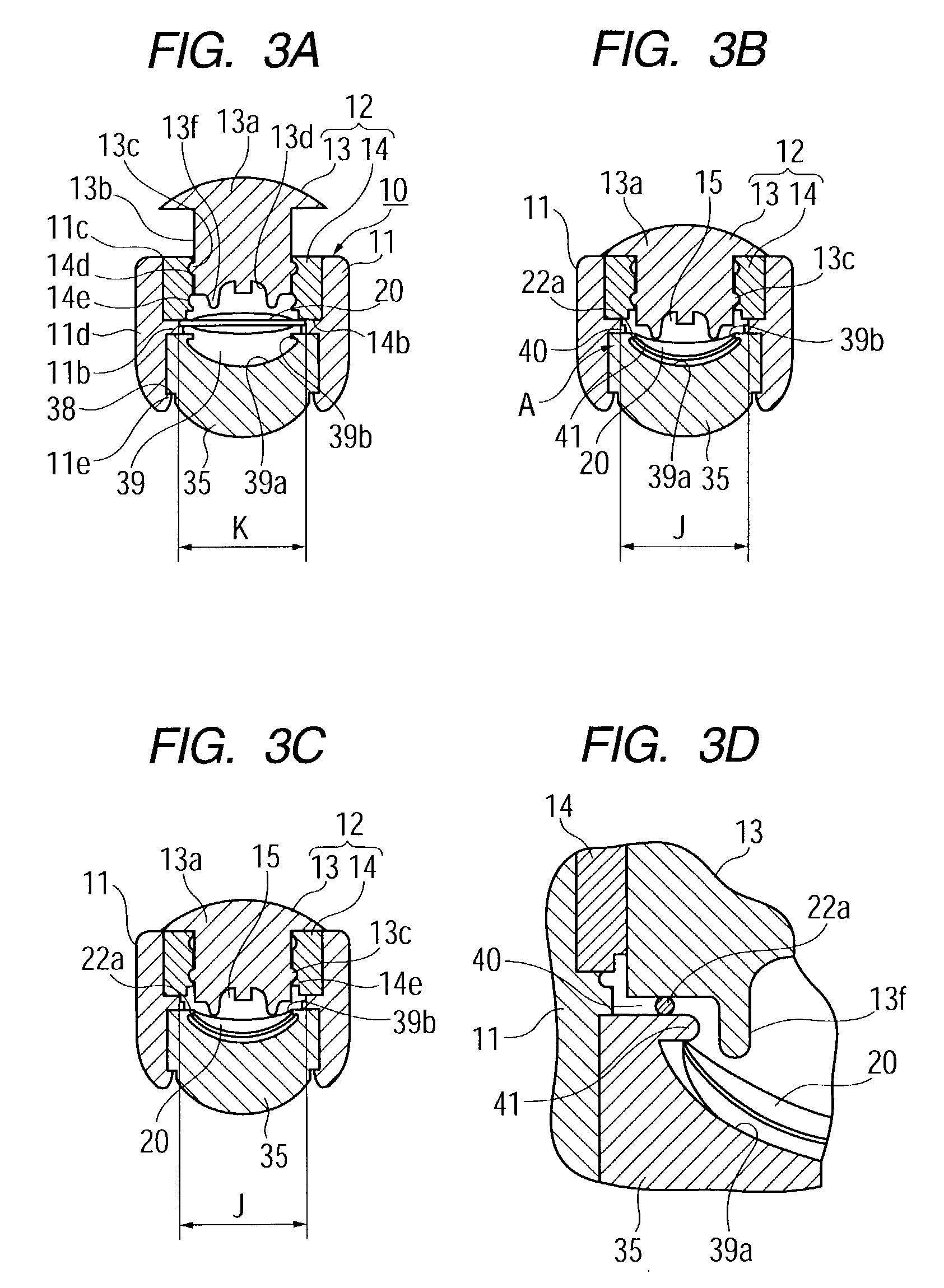Insertion system for intraocular lens
- Summary
- Abstract
- Description
- Claims
- Application Information
AI Technical Summary
Benefits of technology
Problems solved by technology
Method used
Image
Examples
Embodiment Construction
[0032] FIGS. 1A and 1B show one embodiment of an intraocular-lens insertion system according to the present invention. In the present embodiment, an intraocular lens 20 horizontally stored in a lens holding member 10 serving as holding means for the intraocular lens 20 can be moved between a first or standby position at which the vertical position of the center of the intraocular lens 20 does not coincide with the center axis of a push rod 33 of an insertion device 30 and a second or insertion position at which the vertical position of the center of the intraocular lens 20 coincides with the center axis of the push rod 33 of the insertion device 30, so that the intraocular lens 20 can be pushed out by the push rod 33. Further, a push member 13 is provided as a lens moving mechanism for moving the intraocular lens 20 from the first or standby position to the second or insertion position.
[0033] FIG. 1A is a front view of the insertion device 30 to which the lens holding member 10 has ...
PUM
 Login to View More
Login to View More Abstract
Description
Claims
Application Information
 Login to View More
Login to View More - R&D
- Intellectual Property
- Life Sciences
- Materials
- Tech Scout
- Unparalleled Data Quality
- Higher Quality Content
- 60% Fewer Hallucinations
Browse by: Latest US Patents, China's latest patents, Technical Efficacy Thesaurus, Application Domain, Technology Topic, Popular Technical Reports.
© 2025 PatSnap. All rights reserved.Legal|Privacy policy|Modern Slavery Act Transparency Statement|Sitemap|About US| Contact US: help@patsnap.com



